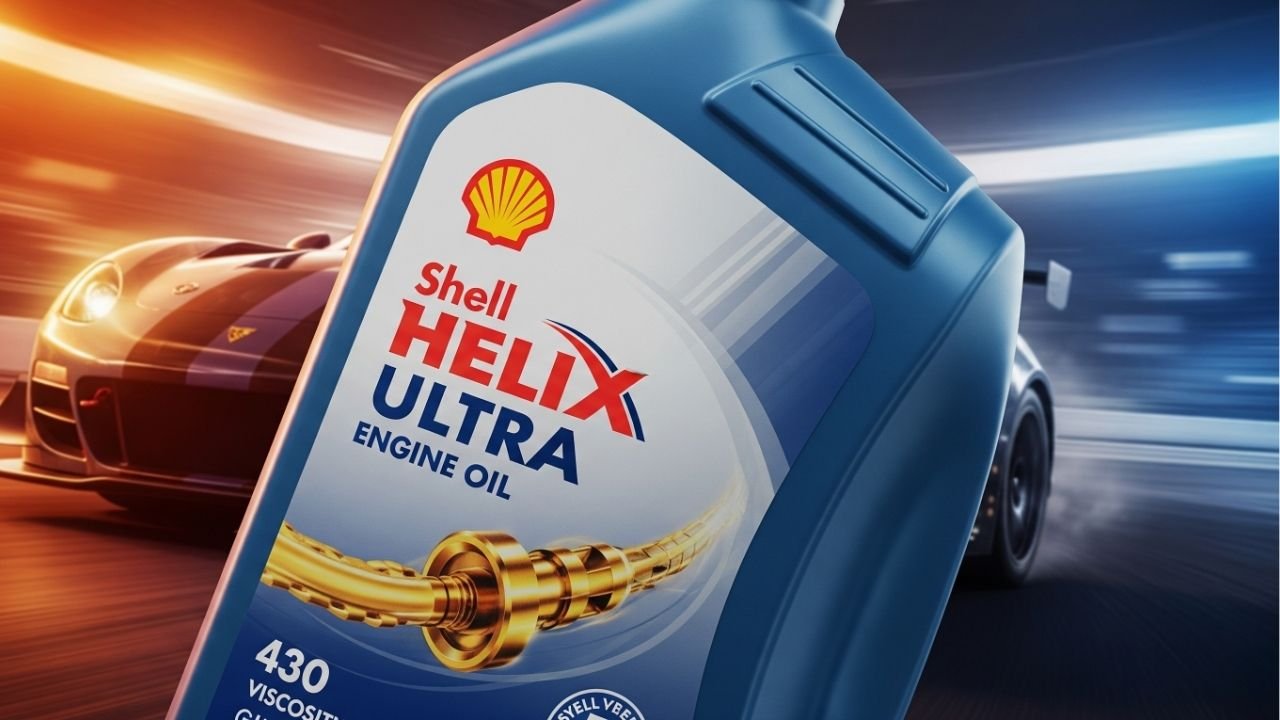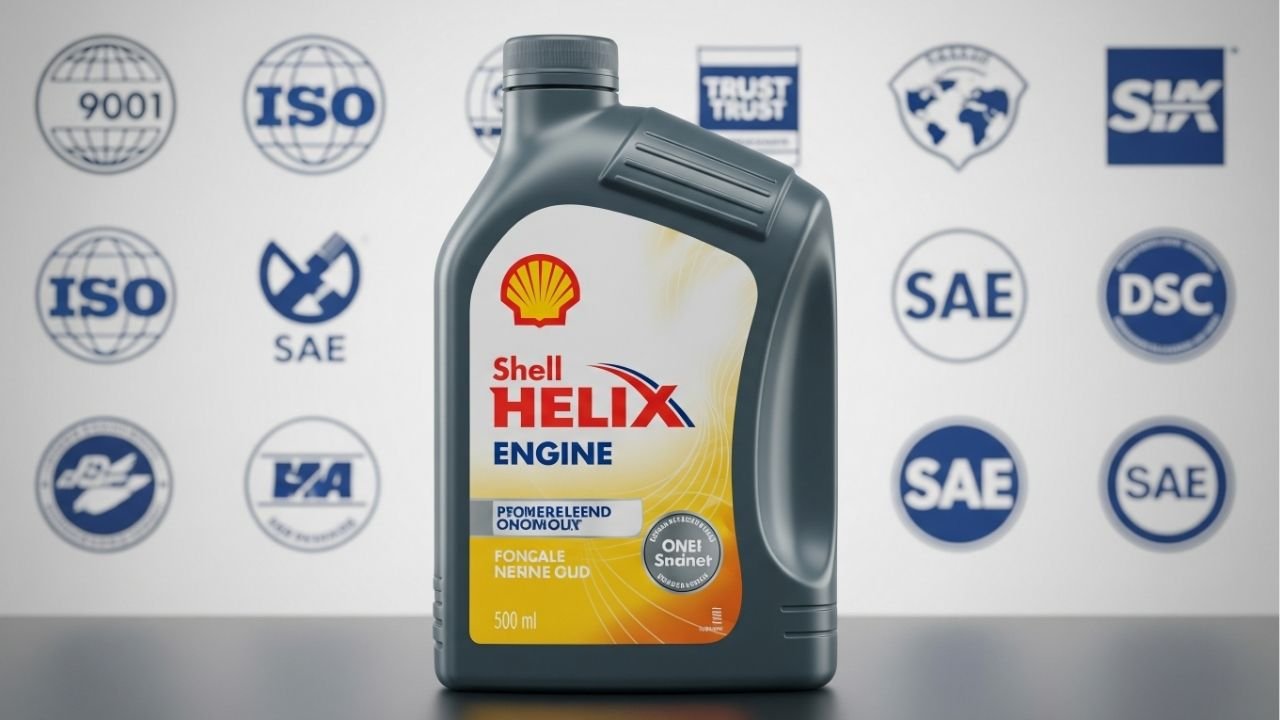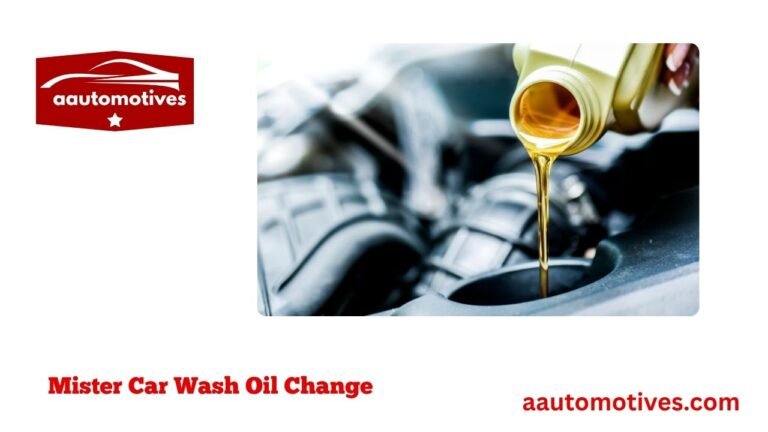Shell Car Engine Oil: The Heartbeat of Your Vehicle’s Performance

If you’ve ever heard your car’s engine sputter, stall, or just not feel right, there’s a good chance the issue started with the engine oil. Most of us think of it as just another fluid in the car, like windshield washer or brake fluid. But engine oil—especially Shell car engine oil—is the lifeblood of your vehicle. It flows through the heart of your car: the engine.
I remember a few years ago, on a long drive to Cox’s Bazar, my old sedan suddenly started making ticking sounds. Turned out, I hadn’t checked the oil in months. That moment taught me just how important choosing the right engine oil is, not just for performance but for peace of mind.
In this guide, we’ll dive deep into Shell car engine oil, uncovering what makes it different, why it’s trusted globally, and how you can choose the perfect one for your ride. Expect stories, tips, facts, and insights to help you take better care of your engine—and maybe even save money in the long run.
Why Shell Car Engine Oil Has Earned Global Trust

So what makes it stand out?
-
Decades of innovation: Shell has been at the forefront of lubricant technology for over 70 years.
-
Used in motorsports: Shell oils are used in top-level racing like Formula 1.
-
Eco-engineered: Many Shell products are designed for fuel economy and fewer emissions.
-
Widely available: Whether you’re in Dhaka, Dubai, or Dallas, you can find Shell oils almost anywhere.
There’s something comforting about using a product that’s been tested under the harshest conditions. Imagine a race car hitting 300 km/h using the same Shell motor oil you put in your family car. That level of trust isn’t bought—it’s earned.
Understanding the Core Functions of Engine Oil
Before we jump into types and grades, let’s understand why your engine needs oil.
Think of your engine as a group of metal parts moving at lightning speed. Without oil, friction builds up, temperatures rise, and metal grinds on metal. Eventually, your engine seizes. It’s like running a marathon barefoot on concrete. Painful and damaging.
Here’s what Shell car engine oil actually does:
-
Lubricates: Reduces friction between moving parts.
-
Cools: Draws heat away from engine components.
-
Cleans: Removes sludge, carbon, and debris.
-
Protects: Prevents rust and corrosion.
-
Seals: Fills gaps between piston rings and cylinder walls.
If you ignore oil, you’re ignoring your engine’s health. And trust me, engine repairs don’t come cheap.
Types of Shell Car Engine Oil: A Friendly Guide
When you walk into a shop or scroll through an online store, you’ll see bottles labeled Shell Helix Ultra, Shell Helix HX7, or Shell Rimula. It can get confusing. Let’s break it down into a friendly chart:
| Product | Type | Ideal For | Key Features |
|---|---|---|---|
| Shell Helix Ultra | Fully Synthetic | Modern petrol/diesel cars | Cleans engine 65% better than industry standard |
| Shell Helix HX7 | Semi Synthetic | Older models needing upgrade | Balanced performance, better wear protection |
| Shell Helix HX5 | Mineral | Budget users, low-mileage cars | Basic protection, suitable for short drives |
| Shell Rimula R6 | Diesel Synthetic | Trucks, commercial diesel vehicles | High endurance, low emission performance |
Each of these options serves different drivers. I use Shell Helix Ultra in my car because I want that added protection, especially during long drives in summer heat. But my uncle, who only drives short distances in Dhaka traffic, is fine with Shell Helix HX5.
How to Choose the Right Shell Engine Oil for Your Car
Choosing the wrong oil is like wearing winter clothes in summer. It’ll work, but it’s not right. So how do you know which Shell car engine oil to pick?
Here’s a simple step-by-step:
-
Check your owner’s manual: Your car’s manufacturer usually recommends the viscosity (like 5W-30 or 10W-40).
-
Know your engine type: Diesel or petrol? Turbocharged or naturally aspirated?
-
Understand your driving style: City traffic, highway runs, off-roading?
-
Consider the climate: Hot regions need oil that can withstand heat. Cold regions need better cold-start performance.
-
Look for certifications: Shell oils usually carry approvals like API SN, ACEA A3/B4, or OEM ratings from BMW, Mercedes, etc.
When in doubt, go with Shell Helix Ultra. It’s fully synthetic, works across a range of temperatures, and offers deep engine cleaning. It’s like giving your engine a daily detox.
Shell Helix Ultra: A Deeper Look Into the Premium Choice
If I had to pick a favorite, it’s hands down the Shell Helix Ultra. Why? Because it’s not just oil—it’s smart oil. It’s made with Shell’s patented PurePlus Technology, which turns natural gas into a crystal-clear base oil.
Benefits that made me switch permanently:
-
Unmatched cleanliness: It keeps engines close to factory-clean condition.
-
Fuel efficiency: I noticed a slight bump in my mileage over time.
-
Smooth performance: My car runs quieter and starts quicker.
-
Temperature resilience: Whether it’s scorching hot or freezing cold, the oil holds up.
A few months ago, my friend swapped to Shell Helix Ultra after using another brand for years. After a week, he messaged me saying, “Bro, I don’t know what’s in this oil, but my engine feels brand new!”
How Often Should You Change Shell Car Engine Oil?
This is where many people slip up. Using the best oil won’t help if you forget to change it on time. So how often?
-
Fully Synthetic (like Shell Helix Ultra): Every 8,000 to 12,000 km.
-
Semi-Synthetic (like HX7): Every 6,000 to 8,000 km.
-
Mineral Oil (like HX5): Every 4,000 to 5,000 km.
But don’t just rely on kilometers. Consider:
-
Your driving habits
-
Engine condition
-
Climate and road conditions
For example, if you’re stuck in bumper-to-bumper traffic daily with the AC blasting, your oil might break down faster. In that case, it’s smart to check it every 2-3 months, even if the mileage seems low.
Signs You Need to Change Your Shell Engine Oil
Listen to your car—it talks. Here are some signs your oil is due for a change:
-
Engine sounds louder than usual
-
Oil light on dashboard flickers or stays on
-
Thick, dark oil when you check the dipstick
-
Vibration or sluggish acceleration
-
Burning smell from the engine bay
I once ignored these signs on my old Civic. One day, mid-commute, the engine just stopped. That repair cost me more than a year’s worth of premium oil. Lesson learned.
Shell’s Commitment to Sustainability and Innovation
One of the reasons I respect Shell car engine oil—aside from its performance—is Shell’s serious approach to sustainability. We’re living in a time when climate change is no longer a future problem—it’s happening now. Every choice matters, even down to the type of oil we use.
Shell is leading the charge with:
-
Low-carbon lubricants
-
Recyclable packaging
-
Carbon-neutral engine oils like Shell Helix Ultra 0W-30
-
Advanced technology that reduces engine wear, meaning fewer replacements and less waste
It feels good knowing that the product you’re using in your engine isn’t contributing as much to environmental harm. It’s a small switch that aligns with a more conscious lifestyle.
Common Myths About Car Engine Oil—Busted!
Let’s take a moment to bust some common myths. I hear these almost every time I go for an oil change:
Myth 1: You Must Change Oil Every 3,000 km
Truth: Not if you’re using high-quality synthetic oil like Shell car engine oil. Most cars today can easily run 8,000 to 12,000 km with synthetic oil.
Myth 2: Dark Oil Means It’s Bad
Truth: Actually, it means the oil is doing its job—cleaning your engine. Shell oils are especially designed to trap dirt and sludge.
Myth 3: All Engine Oils Are the Same
Truth: Absolutely not. Shell Helix Ultra, for example, is made with natural gas and has a molecular purity that cheaper oils can’t match.
Myth 4: Thicker Oil Is Always Better
Truth: Thicker oil can struggle to flow during cold starts. Always stick to the viscosity grade recommended for your car.
How to Check Your Engine Oil Like a Pro
This is one of the simplest, yet most ignored habits among drivers. Here’s how you can quickly check your Shell car engine oil at home:
-
Park on level ground and turn off the engine.
-
Wait 10 minutes for the oil to settle.
-
Pull out the dipstick, wipe it clean.
-
Insert it again fully, then remove and read the level.
-
The oil should be amber and fall between the minimum and maximum lines.
If it looks too dark, gritty, or smells burnt—it’s time for a change.
Pro Tip: Always keep a spare liter of your Shell oil in the trunk, especially on long trips.
Is Shell Car Engine Oil Worth the Price? Absolutely. Here’s Why.
I’ve been asked this many times: “Isn’t Shell a bit more expensive?” And yes, you’ll find cheaper oils out there. But here’s my take based on experience:
-
Fewer oil changes because synthetic oils last longer.
-
Less engine wear, meaning fewer repairs.
-
Better fuel economy, so you spend less on petrol.
-
Peace of mind, knowing you’re using a top-tier product.
I once used a cheaper oil brand during a road trip because I couldn’t find Shell nearby. Big mistake. My car ran hotter, and the engine felt “heavier.” I switched back to Shell car engine oil the moment I got home.
Sometimes, paying more now saves a lot later—especially when it comes to engine protection.
Best Shell Oil for Older Cars: Keep Your Classic Alive
If you’re driving an older model or even a classic car, you might wonder if Shell has something for you. The answer is: yes.
Shell Helix HX7 or HX5 are perfect for aging engines, offering:
-
Better sludge protection for worn-out engines
-
Added detergent action to keep older parts clean
-
Excellent seal protection, reducing oil consumption
I helped my cousin restore a 1998 Corolla, and we used Shell Helix HX7. The difference was obvious. Smoother idling, fewer vibrations, and improved responsiveness. The engine just felt alive again.
Key Features of Shell Car Engine Oil
Let’s make things super clear. Here’s why Shell car engine oil is one of the best choices out there:
-
PurePlus Technology – Turns natural gas into crystal-clear base oil
-
Excellent detergency – Keeps engines factory-clean
-
Fuel-saving formulas – More kilometers per liter
-
Extreme temperature protection – Starts easily in cold, resists heat in summer
-
OEM approved – Meets specs from BMW, Ferrari, and more
-
Low emission support – Helps reduce CO₂ footprint
These aren’t just marketing claims—they’re backed by independent lab testing and millions of drivers.
FAQs About Shell Car Engine Oil
Here are some frequently asked questions to clear up any remaining doubts:
1. Can I mix Shell oil with other brands?
It’s best to avoid mixing. Though it’s not dangerous, mixing may reduce the oil’s performance. Stick to one type for best results.
2. Is Shell Helix Ultra really made from natural gas?
Yes! It uses PurePlus Technology, converting natural gas into base oil for ultra-high purity and performance.
3. Can I use Shell oil in motorcycles?
Shell has specific oils for bikes, like Shell Advance. Always use the oil type recommended for your vehicle.
4. What happens if I delay an oil change?
Delaying can cause engine sludge, reduced performance, and eventually engine failure. It’s not worth the risk.
5. How do I store Shell engine oil?
Store it in a cool, dry place. Keep the cap tightly sealed and away from direct sunlight.
6. Is Shell oil good for high-mileage cars?
Absolutely. Choose Shell products like HX7 or Ultra, which offer extra protection for aging engines.
7. Where can I buy Shell car engine oil in Bangladesh?
It’s available at most auto parts shops, Shell-authorized dealers, and e-commerce platforms like Daraz or Evaly.
8. Does Shell oil improve fuel efficiency?
Yes. Fully synthetic oils reduce internal friction, leading to better fuel economy.
Final Thoughts: Take Care of Your Engine, and It Will Take Care of You
At the end of the day, your car is more than just metal and gears—it’s your ride to work, to adventures, to family. Taking care of it starts with choosing the right engine oil, and Shell car engine oil is one of the best decisions you can make for long-term performance.
From my own journey—from roadside breakdowns to smooth highway rides—I’ve learned that engine care is self-care. When your car runs better, you stress less. And in today’s fast-moving world, that’s priceless.
So go ahead, check your oil level, book that oil change, and treat your engine to the quality it deserves. It’ll thank you every time you start the ignition.






